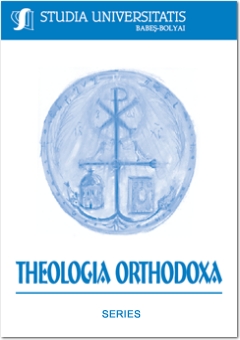CREDINŢA, FAPTA ŞI MORALA ÎN OPERA MONAHULUI NICOLAE DELAROHIA
FAITH, DEED AND MORALS IN THE WORK OF THE MONK NICOLAE DELAROHIA
Author(s): Stefan IloaieSubject(s): Christian Theology and Religion
Published by: Studia Universitatis Babes-Bolyai
Keywords: N. Steinhardt; faith; morals; deed; good; bad.
Summary/Abstract: Faith, Deed and Morals in the Work of the Monk Nicolae Delarohia. N. Steinhardt was one of the most important Romanian intellectuals of the XX century. A writer and a publicist, he was imprisoned by the communists, and it was in prison that he received Baptism as an Orthodox Christian. He became a monk at Rohia Monastery, in Maramures, where he continued his activity as a writer. His work is remarkable by presenting Christianity as sustained by the cultural act and culture as traceable in the act of faith. From a Christian perspective, faith, deed and the moral act are the most important landmarks of the work and life of N. Steinhardt. As a lover of useful paradoxes, he set at the foundation of the Christian life the scriptural text: “Lord, I believe! Help me overcome my unbelief!” – Mark 9, 24. According to his view, faith is directly connected to the courage of believing, to man’s daring to surpass himself. Faith causes the knowing of the world, especially the inner, spiritual knowledge. On the other side, faith is the gift of Christ to those He encounters. Steinhardt considers himself such a favoured. To him, Christ reveals himself in Baptism and afterwards in his life. There is no such thing as theoretical faith. Faith is proved in deed, especially as dynamism of the living in faith. It is an activism, an anxiety of faith to become effective, but also a continuous emphasis on the now and the immediate of the deed, as an effect of the dynamic faith. N. Steinhardt asserts the imminence, even the hurry and the anxiety of making good deeds. The consequence of faith expressed in deeds is the birth of a moral behaviour that is representative for a Christian. Most of N. Steinhardt’s texts have a moral, transmit an ethical message, develop a wisdom teaching. There are in the writings of the monk from Rohia positive and negative aspects of human thinking and behaviour, especially in what concerns the social relationships, and he deals with these aspects in a courageous way, criticizing the way things were in the communist period. Steinhardt asserts that the faithful must point out – with courage – the false values, the immoralities, the injustices and the moral nuances which are not observed by others. The monk Nicolae Delarohia revealed to us a realist Christianity, with no trace of stereotypy, a living, dynamic, concrete and subtle one, valid not only for the masses, but also for the intellectuals, closely connected to the daily reality, un-intelectualized, although pretentious, solicitant and realist.
Journal: Studia Universitatis Babes-Bolyai - Theologia Orthodoxa
- Issue Year: LVII/2012
- Issue No: 2
- Page Range: 65-76
- Page Count: 12
- Language: Romanian

